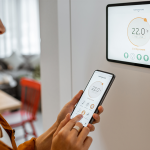
Best Smart Air Conditioner Controller
December 16, 2024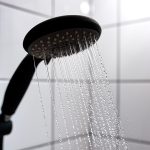
Heat Pump Hot Water Rebate
January 9, 2025Complete Guide to Energy Efficient Heating
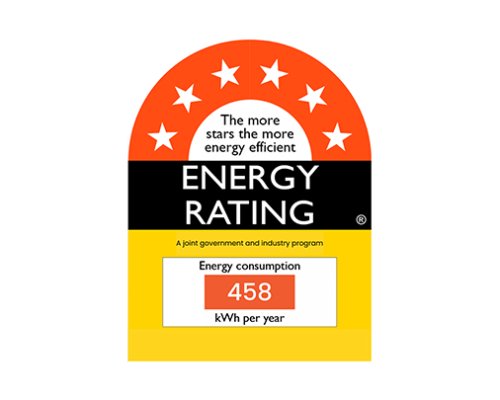
Keeping your home warm in winter is important but can be costly which is where energy efficient heating can help. An energy efficient heater can keep a home comfortable while reducing electricity bills and the carbon footprint. Our complete guide explains what energy efficient heating is, the types of energy efficient heaters and how to choose the right energy efficient heater for your home.
What is an Energy Efficient Heater?
An energy efficient heater is a heater that uses less energy to perform the same task. The more energy efficient the heater, the less energy used which reduces both carbon footprint and electricity costs. To determine this energy efficiency requires comparison of the energy supplied to the heater (input energy) to the energy it produces (output energy). The efficiency of a heater is then calculated by dividing the output energy by the input energy and multiplying it by 100 to get the percentage. A 100 percent energy efficient heater will have all of the electrical energy (input) converted to heat energy (output).
What to Consider When Choosing an Energy Efficient Heater?
Making sure you choose the right energy efficient heater will significantly impact your energy consumption and costs. There are four main factors to consider when choosing energy efficient heating. The energy rating, the size of the space you want to heat, the type of heater and fuel type will all determine the best energy efficient heater for your home.
Energy Rating
Initially the best way to determine if a heater is energy efficient is by looking at the energy rating system which displays a star rating and energy consumption details. The star labelling system compares the running costs and energy efficiency of different appliances. The more stars on the label, the higher the energy efficiency. The energy consumption is how much electricity a heater uses each year in kilowatt hours (kWh). To calculate approximately how much a heater will cost to run each year, you can multiply the amount you pay for electricity usage in kWh by the average annual energy consumption figure on the energy rating label.
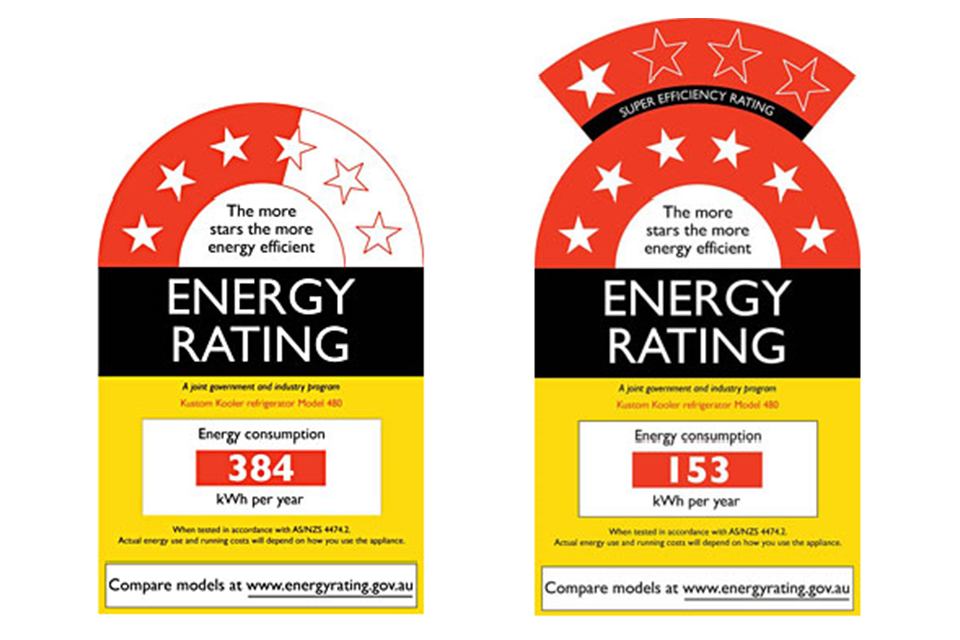
The size of the space you want to heat
To ensure energy efficiency, it is imperative to take into account the size of the area you want to heat. A heater that is too small for the space will be forced to use more energy in an attempt to heat the room. A heater that is too large will end up costing more money in upfront costs and running expenses. As a general rule a small space of up to 20 square metres will only require a 1kW – 1.5kW heater. A large room over 30 to 40 square metres will need a 2.5kW plus heater.
Types of Energy Efficient Heaters
There are many different types of energy efficient heaters on the market. Understanding the difference between each type of heater, their pros and cons is a good way to find out which will be the best energy efficient heater for you.
- Fan heaters: A fan heater uses a fan to pass over a heating element, and then circulates the warm air into the room. Fan heaters are usually small and portable, and can be an energy efficient option for heating small spaces.
Pros: Inexpensive, easy to install, quick to heat up, can be oscillating
Cons: Not suitable for large areas, stop heating as soon as turned off, decrease humidity of the room - Radiant heaters: Radiant heaters produce heat through internal infrared radiation. They don’t rely on blown air to heat a space but have infrared bars that transfers heat directly. Most radiant heaters are small and portable and best suited to small spaces. If used in small areas for limited periods of time, a radiant heater can be energy efficient.
Pros: Inexpensive, easy to install, quick to heat up, quiet, good for people with allergies
Cons: Limited temperature control settings, exposed heating elements, not good for large areas - Convector heaters: A convector heater is also known as a convection heater. These are electric powered heaters that draw in cold air, pass it over a heating element and back into the room for heat. Unlike radiant and fan heaters, convector heaters are typically larger and can heat a larger space. Convector heaters can be energy efficient if not left on for extended periods of time.
Pros: Good for larger spaces, heats evenly, quiet, no exposed heating elements
Cons: Not as energy efficient as radiant or fan heaters, can overheat, can accumulate dust - Oil-filled heaters: Oil-filled heaters are often referred to as column heaters because of their column design. These heaters produce radiant heat by heating up the oil within the heater which is then circulated through the columns. Oil-filled heaters retain heat for long periods of time which makes them economical to run. They are capable of heating large rooms.
Pros: Long lasting heat, can heat larger rooms, quiet
Cons: Slower to heat up, hot to touch, heavier than other heaters - Reverse-cycle split systems: Reverse-cycle split system units provide both heating and cooling and are one of the most energy efficient heating and cooling systems on the market. When the reverse cycle unit is on the heat setting, it extracts the heat energy from outside and transfers it into the home in the form of heating. Reverse-cycle units heats the house quickly and uses less energy than gas or electric systems.
Pros: Heating and cooling functions, most energy efficient, air purifying, longevity
Cons: More expensive than other heaters, requires professional installation - Gas heater – Natural or LPG: Gas heaters can be fueled by either natural gas or LPG. Gas heaters are an energy efficient option as they turn most of the energy produced into heat which is then blown into the room or home. There are a number of different types of gas heaters from gas wood fires, gas radiant heaters and unflued gas heaters.
Pros: Energy efficient as convert most of the energy to heat, cost effective depending on gas prices
Cons: Potentially harmful byproducts, require gas line or gas tank, gas may be phased out - Ceramic heaters: Ceramic heaters are fan-based, portable heaters that work using the principle of resistive heating. A ceramic heater passes an electric current through a ceramic plate to produce heat. Like fan heaters and radiant heaters, these heaters are best suited to small spaces. If used correctly, they can be energy efficient heating options.
Pros: Energy efficient in the right space portable and small, safe to use, good heating capacity
Cons: Take a while to heat up an area, more expensive than other portable heaters, can be noisy, can dry out the air - Hydronic heater: Hydronic heating works by heating water and distributing it through pipes and radiators. It can be used as in-slab heating, to heat towel fails and even swimming pools. Hydronic heating is an energy efficient method of heating large areas.
Pros: Energy efficient, can be zoned, quiet, reduces airborne allergens
Cons: Can be expensive to install, warm up time delay - Electric fireplace: Electric fireplaces have no flame but rather work with LED lights and mirrors. The LED lights flicker that produces the look of flames and the mirror reflects the light for depth and movement. Electric fireplaces not only look good, but are an energy efficient method of heating for a small to mid-sized room.
Pros: Energy efficient, easy installation, attractive feature, quiet
Cons: Reliant on electricity, higher upfront cost, heat distribution is limited compared to other heaters - Ducted heating: The most common ducted heating system used to be gas, but now these are being replaced with electric ducted heating. Electric ducted heating uses a central heating unit to heat the air which is then distributed throughout the house through a series of ducts. Ducted electric heating is good for heating large spaces and entire homes. A ducted electric system can be installed as heating and cooling. It is an energy efficient form of heating but because it heats large areas it can be costly. It can also be more expensive to install if replacing a gas ducted system.
Pros: Energy efficient and eco friendly, heats large areas
Cons: Higher upfront cost, may require ductwork installation or upgrade
Fuel Types
When it comes to heating, the type of fuel used will impact energy efficiency. The main fuel types used for heaters are electricity and gas, each with their pros and cons. The type of fuel source you choose will depend on the amount of area to be heated, existing power sources and personal preferences.
- Electricity: Electric heating converts electricity into heat which then radiates or has a fan that blows the hot air into the room. Electricity is an energy efficient form of heating and can be fan heaters, radiators, reverse cycle and ducted.Advantages of using electricity: Environmentally friendly, more energy efficient than other heating, available in majority of places
Disadvantages of using electricity: Can be expensive if electricity costs rise, cannot use if there is a power outage - Gas: Gas heating can be fuelled by natural gas or LPG. The gas flows through a valve and is lit by the igniting of a pilot light or electric filament. Natural gas is fed through a meter outside the home, while LPG can be used by installing LPG bottles outside the home. These need to be replaced when they run out. While gas has been a standard fuel for heating, it is becoming more expensive and being phased out by the Victorian Government.
Advantages of using gas: Natural gas is piped directly to home, provides a powerful heating source
Disadvantages of using gas: Non-renewable source, being phased out, rising costs, can produce carbon dioxide emissions
Best Energy Efficient Heater
Energy efficient heaters use less energy to heat a space. Here are some examples of the most energy efficient heaters on the market right now, based on energy efficiency ratings, renewable resources and their approximate cost to run based on wattage or megajoules.
Best Energy Efficient Reverse Cycle Split System Heater (Best overall)
Daikin Cora 2kW reverse-cycle split system.
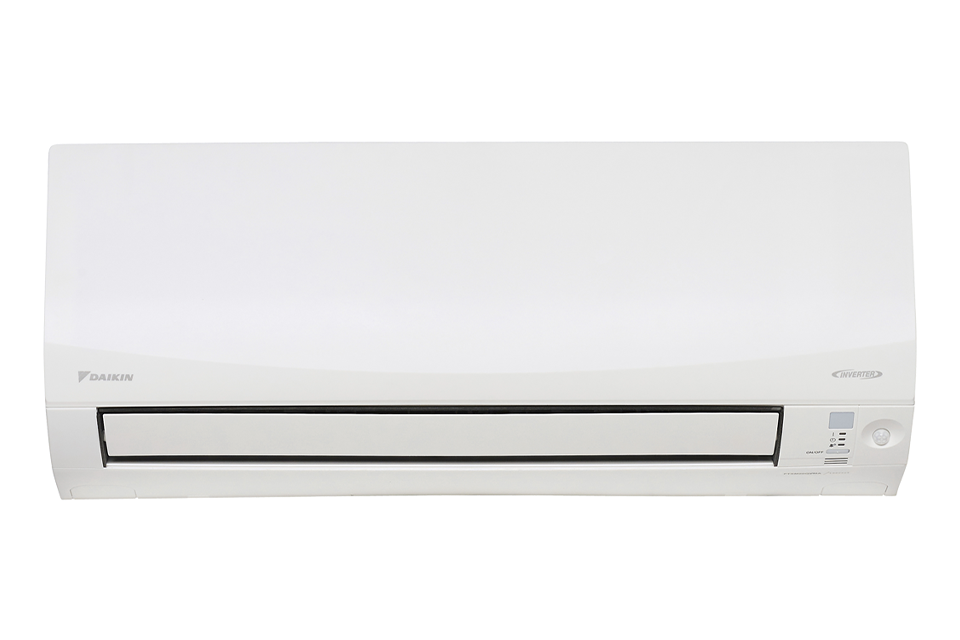
Our choice for the most energy efficient reverse cycle split system heater is the Daikin Cora 2kW reverse cycle split-system. Reverse cycle split system heating takes the heat from outside and releases it to warm the room which makes this type of heater the most energy efficient. The Daikin Cora 2kW has the added bonus of a 6 star energy rating, and will cost between approximately 13 cents and 36 cents per hour when running on the heat setting which is why it is also our choice for best overall energy efficient heater.
Best Energy Efficient Portable Gas Heater
Omega Altise Lancer Radiant/Convector Heater
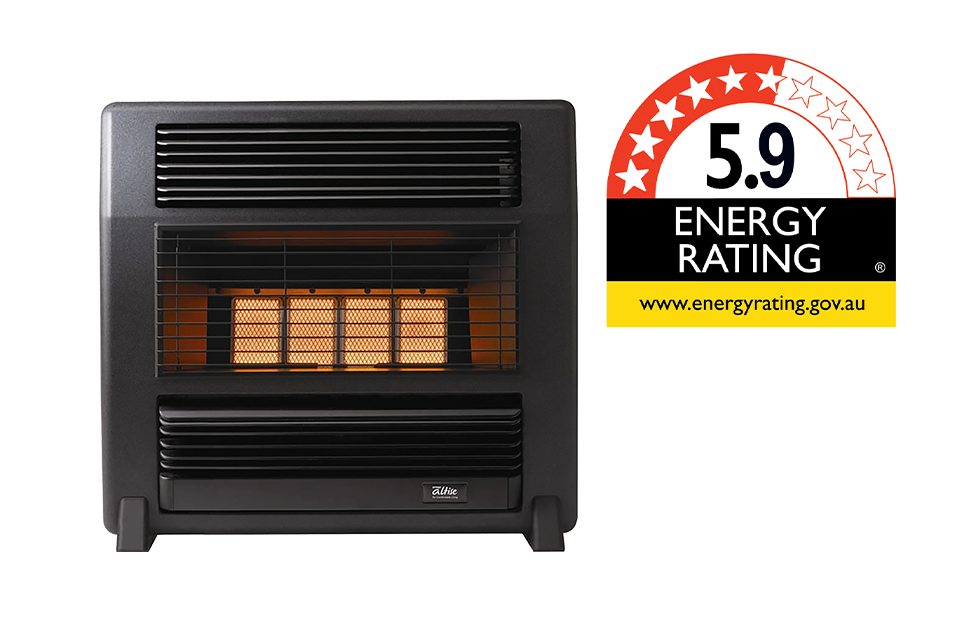
With a 5.9 star energy rating, we chose the mega Altise Lancer Radiant/Convector heater as the most energy efficient portable gas heater. It will heat a large area up to 52 square metres, and only uses 15mj per hour, which equates to a cost of approximately 60 cents per hour.
Best Energy Efficient Portable Electric Heater
DeLonghi 2400W Digital Ceramic Tower Heater
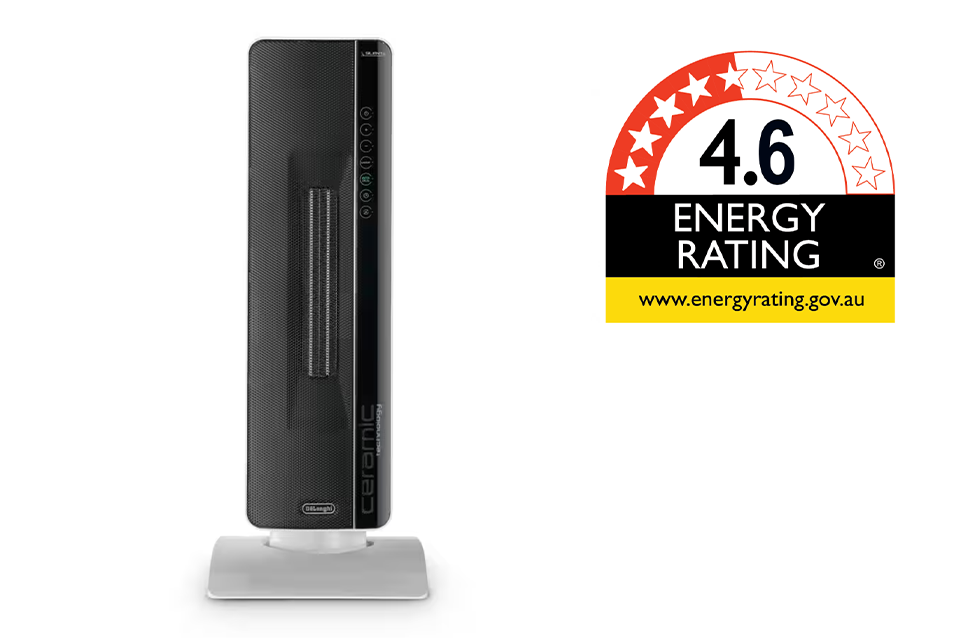
The DeLonghi 2400W Digital Ceramic Tower heater is our choice for the best energy efficient portable electric heater because it can heat a medium sized room using only 1.2kW to 2.4kW of energy which is about 50 cents per hour.
Best Energy Efficient Oil Heater
De’Longhi Radia 2400W Oil Column Heater with Timer
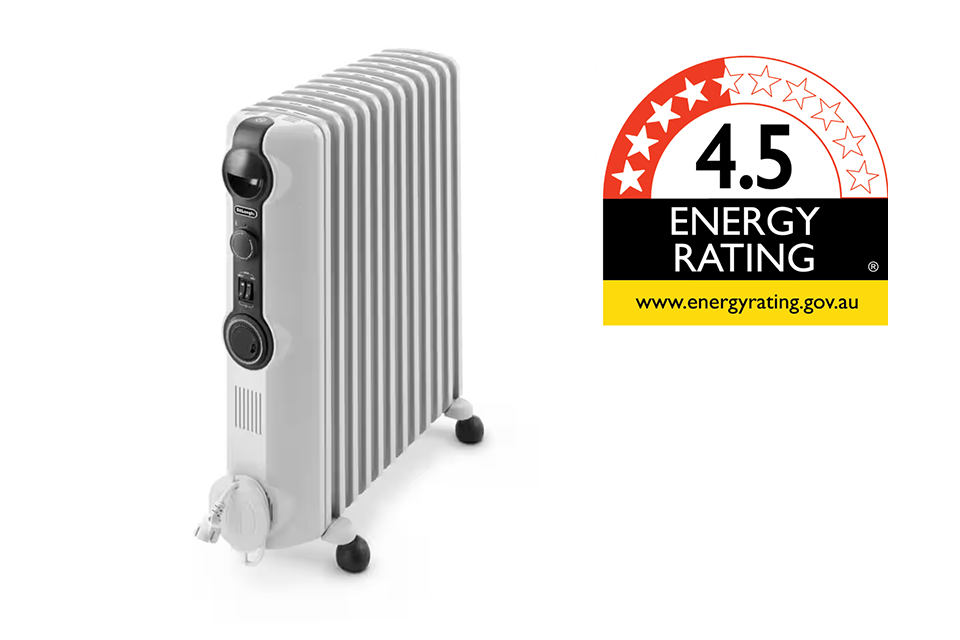
With a 4.5 star energy rating, the De’Longhi Radia 2400W Oil Column heater is our choice for best energy efficient oil heater. Its 2.4kW power will heat a large room, and will cost about 50 cents per hour.
Other Ways To Save Money on Heating
If you are looking to save more money on heating bills, investing in an energy efficient heater is a good start. There are also a number of other ways to reduce energy costs. We examine some options here.
- Compare energy plans: It is always a good idea to compare energy plans to see if there is a better deal available. Some energy providers will give you a discount to first time customers. Energy tariffs (the amount a provider charges for energy usage) differ between each provider. The Victorian Government has an energy price comparison site where you can compare electricity, gas and solar tariffs.
- Change some heating habits: You can lower your energy bills by making some small tweaks to your heating habits. This could include lowering the thermostat on the heater, closing doors and windows when you are heating a room, stopping draughts with door snakes, only using the heater when it is necessary, wearing warmer clothes, investing in electric blankets, and switching off other appliances which use ambient power.
- Improve home insulation: A well insulated home can help you save 40 to 50% off heating bills. Insulation is the best way to ensure a home’s energy efficiency, reducing heat transfer dramatically. Insulation can be assessed by an architect, building inspector, or energy assessor to see if it needs to be improved.
- Install double-glazed windows: Like insulation, windows play a big role in the energy efficiency of a home. Installing double-glazed windows will reduce heat loss by up to 40%. That is because double-glazed windows have two panes of glass with a hermetically sealed layer of gas, which reduces the transfer of heat dramatically.
- Consider installing solar panels: Solar panels can save you about 40 to 50% off your electricity bills. That is because you are no longer buying as much energy from the retailer but producing it yourself with the solar panels. There will be an initial outlay to begin with but most solar panels pay for themselves in as little as five years.
- Design the home for optimal energy efficiency: If you are building a new home or renovating, you can make it more energy efficient with some simple design choices. These include a north-facing orientation to maximise sunlight, using thermal resistant cladding material, and light coloured roof and airlocks to name a few.
Energy efficient heating is a proven way to save energy and maximise savings, but sometimes we are not sure what exactly energy efficient heating means. Our guide explains why some heaters are labelled energy efficient, what the energy rating label means, the most energy efficient heaters and how to choose the right one for your home. For further information, contact the experts in heating and cooling at Simply Air.
 Schedule a quote
Request a callback
Schedule a quote
Request a callback

Call us Mon-Fri: 8:30am-5pm or leave us a message for a callback.
